Download BECA 2011 Magazine [25MB, PDF] - Global Alumni ...
Download BECA 2011 Magazine [25MB, PDF] - Global Alumni ...
Download BECA 2011 Magazine [25MB, PDF] - Global Alumni ...
Create successful ePaper yourself
Turn your PDF publications into a flip-book with our unique Google optimized e-Paper software.
Bengal Engineering and Science University, ShibpurWomen Managers in Indian Organizations: Some Critical IssuesDr. Pradip Kumar Ray (ME, 1979 Batch)ProfessorDepartment of Industrial Engineering and ManagementIndian Institute of Technology KharagpurKharagpur 721 302 IndiaIntroductionThe human resources are considered to be themost important asset of an organization. In orderto be an excellent performer, the management ofany organization is required to manage effectivelyboth men and women resources so that theirpotential and special talents are utilized towardfulfillment of organizational goals. However, inthe majority of Indian organizations, there aresignificant differences in perceptions betweenmale and female employees, including managers,on key gender issues. To develop a healthy,creative, and learning organization, it isimperative that such perceptual differences andtheir causes need to be addressed.It was not until 1970’s that a few organizationsand interest groups started addressing the issuesof women managers seriously. Since then, the socalled‘gender revolution’ has been sweepingthrough many organizations across the globe,including India. In almost all types oforganizations, women have been joining in largenumber at different positions and levels in theorganization structure. At present, womenrepresent more than 40 per cent of the world’slabour force. This has happened due to a numberof reasons. Because of pursuing specific policiesand programmes to help women participate andengage in various types of jobs, the organizationshave been committing themselves to the cause ofwomen development. A few statistics in thisregard is quite revealing. Women make uparound 30 percent of the official labour force indeveloping countries, and almost 47 percentworld wide. Also, rural women produce morethan 55 per cent of all food grown in developingcountries. History shows that women have alsoproved to be successful managers and owners ofbusinesses.There is no question that compared to the earlierdecades, women today are better educated andhold more jobs world wide. Companies andenterprises have started to recognize the uniquecharacteristics, attitudes, behaviours, andmanagement style that women bring to theprofessional world and which is different than thatof men. In this context, there are a few quiteinteresting views going round the corner. One ofthe catch phrase of modern management gurus is“why can’t a man be more like a woman?”! It ismentioned that the so-called feminine “soft skills”are necessary qualities for corporate success. Thischange in attitude is not a myth, but a reality. Thegrowing interdependence among the nations hascreated a demand for sophisticated managerswho are skilled in working with people of othercultures and who understand internationalbusiness. Women possess a unique “interactivemanagement” skill that needs to be utilized fullyin the organizations of the future if the economiesof tomorrow want to be prepared for competingin the 21st century.However, it is reported that women managers donot necessarily have a promising future in theorganizations they work. Many of them in mostparts of the world feel, albeit genuinely, that theirpossibility of advancement into the upper levels oforganization in senior management positions isvery less. This view has also been reflected in arelevant ILO study report which states that thereare only a few women managers holding seniormanagement positions at the top. There is nodenying the fact that there exits significant gender9


![Download BECA 2011 Magazine [25MB, PDF] - Global Alumni ...](https://img.yumpu.com/48428488/45/500x640/download-beca-2011-magazine-25mb-pdf-global-alumni-.jpg)
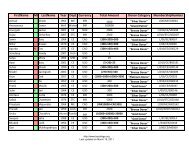
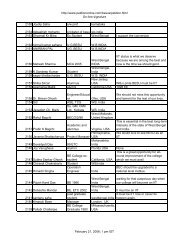
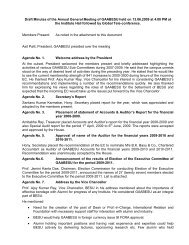
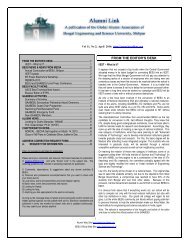

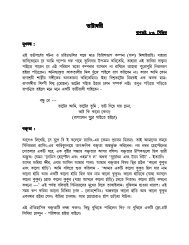
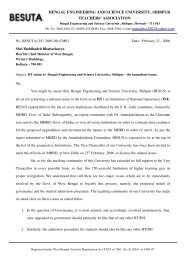
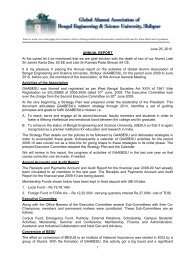
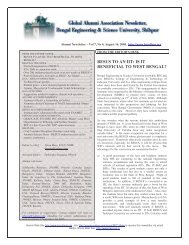
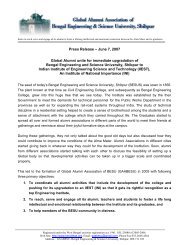

![Brochure [PDF] - Global Alumni Association of Bengal Engineering ...](https://img.yumpu.com/33102143/1/180x260/brochure-pdf-global-alumni-association-of-bengal-engineering-.jpg?quality=85)

